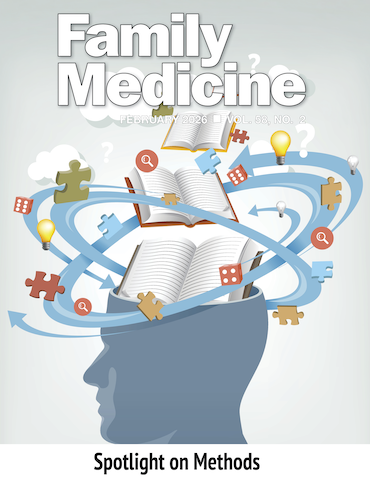Family Medicine, an official journal of the Society of Teachers of Family Medicine, aims to publish high-quality, original scholarship about education in family medicine and primary care. The journal publishes original research, systematic reviews, narrative essays, and policy analyses relevant to the discipline of family medicine, particularly focusing on primary care medical education, health workforce policy, and health services research. The journal does not publish clinical review articles.
Family Medicine is committed to advancing efforts toward inclusion and antiracism in all journal-related activities. We endeavor to eliminate bias and racism in our editorial process and published content.
Read the full diversity statement.
Submit Issue Cover Art for Family Medicine
Interested in submitting a photograph, painting, or artwork for consideration for a future Family Medicine issue cover? Send the high-quality digital image to sgrammer@stfm.org.
E-ISSN: 1938-3800
Open Call For Papers—
Theme Issue on Scope of Practice in Family Medicine
Submission Deadline: March 2, 2026
Listen to our Podcast Series—"Demystifying the Publication Process"
- June 2024: Demystifying the Publication Process - Part 1 with Sarina Schrager, MD, MS, and Octavia Amaechi, MD
- July 2024: Demystifying the Publication Process - Part 2 with Sarina Schrager, MD, MS, and Octavia Amaechi, MD
- August 2024: Demystifying the Publication Process - Part 3 with Sarina Schrager, MD, MS, and Octavia Amaechi, MD



